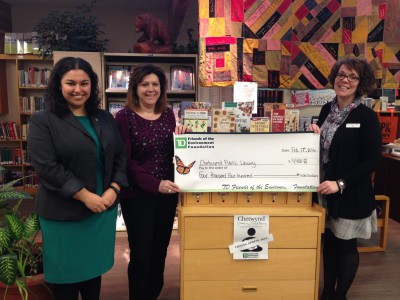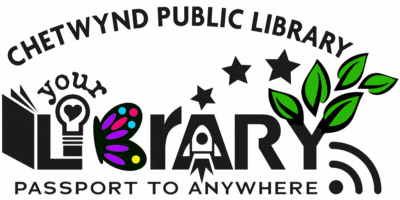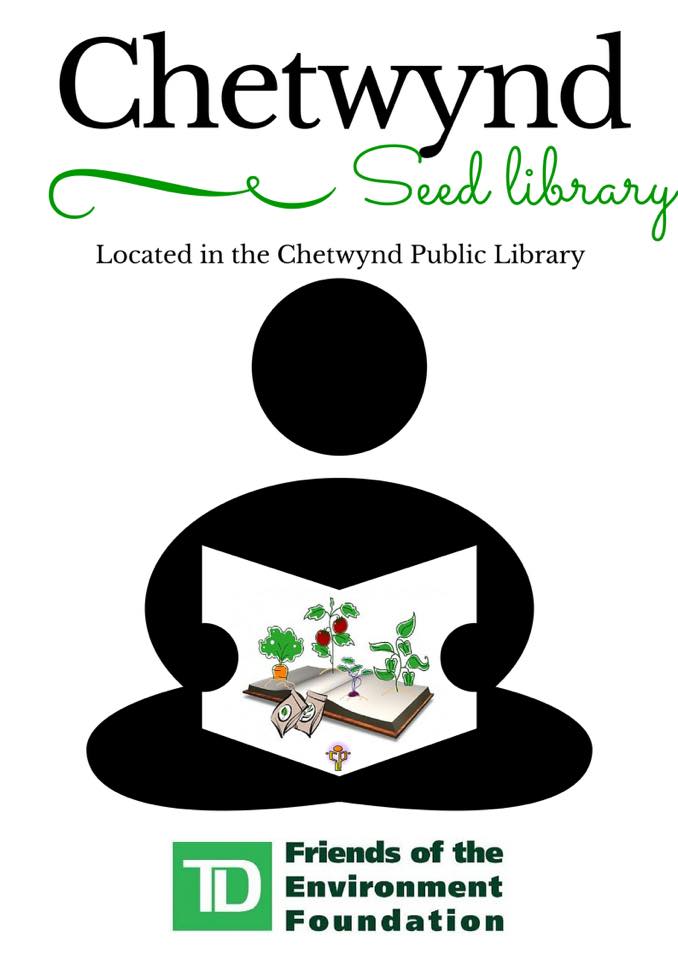Hardy Fruit Tree Propagation Presentation
 CPL Seed Library Member Record
CPL Seed Library Member Record
What is a seed library?
A seed library is exactly what it sounds like – a library of seeds. Seed library members borrow seeds at no charge, and are then expected to save seeds from the plants they grow and to return some of those seeds to the library at the end of the growing season. By returning seeds from successful plants, members ensure the sustainability of the library, as well as help in cultivating seeds that are especially suited to our community’s growing conditions.
Our Seed Library will focus on developing a sustainable, local resource for seeds specific to our area where members can borrow seeds for free, grow them, and save some to donate back to the Seed Library. By contributing to and supporting community gardeners more people will have the opportunity to grow their own healthy, affordable, food. This initiative supports the collaboration of all South Peace gardeners in sharing seeds, gardening knowledge and resources, and connecting with other seed savers.
| Seed Saving Chart | How to save Lettuce seeds |
| Six Tips For Saving Seeds | How to save Pea and Bean seeds |
| A Seed Saving Guide | How to save Tomato seeds |
| Printable files from www.borrowsaveshare.com |
Do I have to return seeds?
Our Seed Library encourages you to try your best to save your seeds and return some to the library. However, a number of growing conditions may impact your ability to save and return your seeds. If you are unable to save seeds, it would be helpful to us to hear why and we will factor this into the seeds that are provided in the future.
If so, how do I properly save seeds after harvest?
Our Seed Library will provide instructions on how to save seeds through workshops, as well as print or online resources. The methods for saving seeds will depend on the variety of plant. Some seeds are quite easy to save. In these seeds there is little risk of cross pollination, so when you plant seeds next year you’ll get the same fruits or vegetables that you got last year. These seeds also require fewer steps to successfully save seeds. Some seeds, like those in the squash and pumpkin family require a bit more work to successfully save. These seeds easily cross pollinate and therefore are required to be a certain distance apart and may need to be hand pollinated.
When do they need to be returned?
The seeds may be returned at any time that you have completed the seed saving process. Our Seed Library can store the seeds in the fall and have them available again next spring. You can return the seeds in any package as long as it is clearly labelled and we will repackage them for storage in the Seed Library.
Do I have to bring back the same type of seeds I check out?
Ideally, yes you will bring back the same type of seeds that you checked out. However, many factors may affect whether the seeds you checked out will grow and produce seeds. Also, if you have checked out seeds that are more difficult to save seeds from and did not follow all of the instructions on how to save seeds, it is best that you do not bring those seeds back to the library because they may have cross pollinated and not produce a plant with the same traits next year. You are welcome to bring back seeds from additional varieties, as long as they are heirloom and correctly saved.
What if I am unable to return seeds?
Our Seed Library is a new project and we understand that seeds are not a typical library checkout item, so a lot of things can impact whether your seeds grow into plants or are able to live long enough to grow seeds. If you plant the seeds and they do not grow or do not produce seeds, we would like to hear from you to let us know what happened. That can help us make the program better for next year.
If you are unable to return the seeds, we would like to know why so that we are able to improve the seeds and information that are provided for next year. Did the seeds simply not grow? Was there a pest that caused a lot of damage? Did the plant grow but never produce seeds? We will ask you to complete a short survey to explain what happened as best you can. If you complete the survey, you will still be able to borrow seeds in future seasons and all your responses will be kept confidential to be used by program staff only unless you are willing to share your experiences with others.
Can I donate my own seeds?
Yes, you can donate your own seeds. You will need to make sure you are saving seeds from an heirloom variety of plant, rather than a hybrid plant. While hybrid plants may produce well in the first season, they are not able to reproduce the same results the following year. Follow the instructions for seed saving that are available through this program, resources available at the library, or from the internet. When the seeds are ready, you can bring them into the library anytime and fill in a form that identifies the variety of seed and any tips you have on growing it successfully. We will take care of packing and labeling the seeds so they are ready to be checked out in the spring.
What seeds do you have?
A complete list of seeds will be available in the library, in a binder located next to the seeds. This catalogue will also be available on the library website..
What is the difference between heirloom seeds and regular seeds?
When you shop at a typical grocery store, you may notice that there are only a few types of each kind of vegetable available. These are the handful of types that are used in modern, larger scale agriculture that do well in grocery stores. However, there are many different types of each kind of vegetable that are becoming increasingly rare as a few popular kinds have taken over. For example, not all carrots are orange; they can be red, purple, or yellow.
Heirloom seeds are from plants that are now rare or unique and have a long history of being grown. They have been nurtured, selected, and handed down from one family member to another for many generations. Heirloom seeds are open-pollinated. That means that the seeds are stable varieties and not hybrids of two varieties of plants. Heirlooms seeds are also not genetically modified (GMO) in any way.
Are the seeds at Chetwynd Public Library Seed Library all organic?
The seeds purchased at the start of the Seed Library will be purchased from reputable vendors. We, encourage that those donating seeds practice organic growing methods and be honest when providing information on their seed donations. However, there is no guarantee that the seeds donated by community members are organic. As long as you use organic growing methods, your vegetables will be essentially organic, just unable to be certified by an independent certifier until you have been growing them organically for a minimum of 3 years.
I can’t find the kind of seed I’m looking for in the Seed Library. What do I do?
In the beginning we will start with a limited supply of seeds and funds so some varieties will not be available at this time. If there is something that you would like to see next year, let us know. Or, if you choose to purchase heirloom seeds instead this year, you can choose to save them and donate some to the library to help us grow our collection for next year.
How many seeds can I check out?
A total of 6 packages of seeds including both vegetable and flower categories may be checked out. This may change as our Seed Library grows allowing members unlimited borrowing of seeds. Please be responsible in your borrowing; only borrow seeds you intend to plant, grow and save/return, and be conscious of the fact that you are now part of a community of gardeners.
Are there other seed libraries around our area?
The Chetwynd Public Library Seed Library is the first of its kind in our Peace River Area. While seed libraries have been around in some other communities around the world for some time, there has been a recent burst of activity on the Canadian scene. A couple of nearby communities, MacKenzie, BC and McBride, BC have recently started seed libraries in their Public Libraries. If you’re interested in learning more about the seed libraries of the world, check out the seed library social network at www.seedlibraries.org or for local Seed Libraries of British Columbia there is an online directory at www.borrowsaveshare.com/bc-seed-sharing/directory which will be helpful.
Can I search for seeds in the Chetwynd Public Library Seed Library Catalogue?
No. The Seed Library is located inside the Chetwynd Public Library building, but it is not yet a part of the Library collection. As such, you won’t be able to search for seeds in the CPL catalogue, or place holds on seeds as you would traditional library materials. We do, however, have a seed catalogue available both in the building and on the CPL website.
 How is the seed library funded?
How is the seed library funded?
Our Chetwynd Public Library Seed Library is being funded for 2016 by a grant from the TD FEF (TD Friends of the Environment Foundation). They have put forward the initial funds to kick-start the seed library, but the sustainability of the library depends on its members! By returning saved seeds (and donating other seeds), members help the library to continue supplying the public with access to free seeds.
Is the seed library free for the public?
Yes. All you need to register for the Seed to Seed Library is to have a valid Chetwynd Public Library card and fill out a Seed Library membership form.
Are seeds available year round? If not, how long is the access to the resources?
The seed library will have materials available year round, though not all seeds can be planted year round. More information about when to plant various seeds can be found in our seed library catalogue.
Will there be supporting information for the seed library?
Our Seed Library will provide ongoing access to information to support our gardeners in growing their own food. As well as information sheets on basic gardening and seed saving, the library will be hosting a series of workshops of interest to gardeners throughout the spring, summer and fall. Chetwynd Public Library also has a wide variety of resources that will be of interest to gardeners, and select resources will be displayed alongside the seeds.
How can I get involved?
If you’re interested in volunteering with the Chetwynd Public Library Seed Library please call 250-788-2559. You are also welcome to donate your own seeds at any time.
Who do I contact for more information?
For more information, please contact the Chetwynd Public Library at 250-788-2559.


